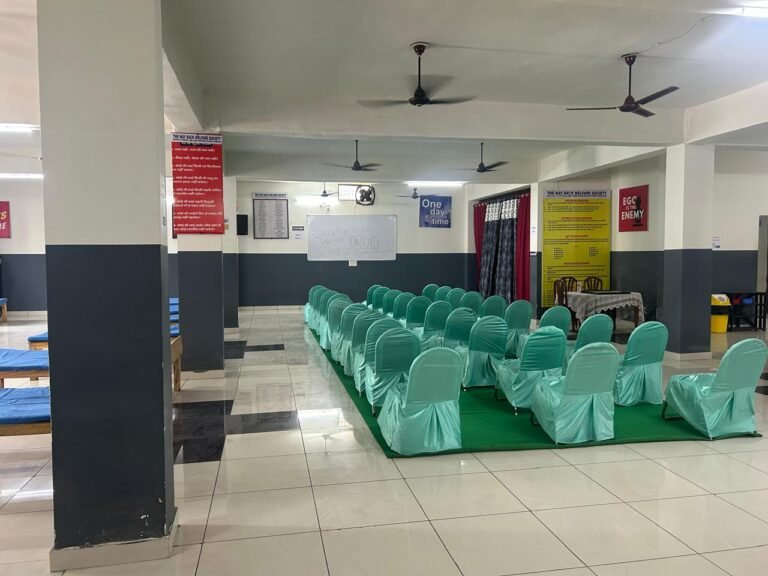Buying a commercial property is one of the biggest financial decisions you can make as a business owner or investor. Unlike residential property, a commercial property is not just about living space – it is about growth, income, and future opportunities. Whether you want to start your own office, open a retail shop, or invest in a property that generates rental income, you must be very careful before making a purchase.
Many people rush into buying without proper checks and regret later when they face legal issues, low returns, or location problems. To avoid these mistakes, it is important to know exactly what you should check before finalizing a deal. In this detailed guide, we will go step by step and discuss the key things that every buyer should look at when buying commercial property for sale.
Note: Find the best Commercial Property for sale in Thane, offering prime locations, modern facilities, and great investment opportunities for businesses and investors.
Understanding Why Careful Checking Is Important
When you buy a commercial property, you are not only spending money but also securing your future business goals. Unlike renting, ownership gives you long-term stability, but it also comes with responsibility. A wrong decision can affect your savings, business operations, and even your peace of mind.
For example, buying a property in the wrong location may reduce your customer reach. Ignoring legal documents can bring disputes in the future. Overlooking maintenance issues can increase costs unexpectedly. This is why checking every detail in advance saves you from bigger problems later.
Location Matters the Most
The first and most important factor is the location. A property may look attractive on paper, but if the location is not suitable, it may not bring good returns.
Accessibility and Connectivity
Ask yourself: Is the property easily reachable by road, metro, or public transport? Customers, employees, and suppliers should not face difficulties in reaching your office or shop.
Surrounding Infrastructure
Check if there are banks, restaurants, parking spaces, and other facilities nearby. Good infrastructure always increases the value of a commercial property.
Future Growth of the Area
Look at the future development plans in that location. Upcoming metro lines, highways, or malls can increase the property value. On the other hand, if the area has no growth potential, your investment may not give good returns.
Legal Verification of Property
Legal checks are very important because even a small mistake can lead to long-term disputes.
Ownership Documents
Ensure that the seller has clear ownership of the property. Ask for the sale deed, property title, and ownership history.
Land Use Approval
Confirm that the property has commercial approval from local authorities. A property meant for residential use should not be used for business purposes.
Encumbrance Certificate
This certificate proves that the property is free from loans, mortgages, or legal disputes. Without this, you may end up in unnecessary financial troubles.
Building Approvals
If you are buying space in a commercial building, make sure it has proper approvals from the municipal corporation or local development authority.
Financial Considerations Before Buying
Money plays a big role in property buying, and many people forget to calculate hidden costs.
Purchase Price
Check whether the price being asked is reasonable compared to similar properties in the same location. Do some market research before agreeing to a deal.
Loan and EMI Options
If you plan to take a loan, compare interest rates from different banks. A lower interest rate can save you a large amount in the long run.
Extra Charges
Do not forget about registration fees, stamp duty, property tax, maintenance charges, and brokerage fees. These add up to your overall cost.
Rental Returns
If you are buying as an investor, calculate the rental income you can get. The rental yield should be high enough to cover your expenses and still give you profit.
Property Condition and Quality
Many buyers only focus on the price but ignore the physical condition of the property.
Structural Safety
Inspect the building for cracks, water leakage, or construction quality issues. You don’t want to spend extra money on repairs soon after purchase.
Age of the Building
Older buildings may come at a lower price but may have higher maintenance costs. Newer buildings are usually more energy-efficient and safe.
Parking and Utilities
Check if the property has enough parking space, water supply, power backup, and internet connectivity. These basic facilities are very important for business operations.
Compliance with Safety and Government Rules
Commercial properties must follow several safety and government regulations.
Fire Safety
See if the building has fire alarms, extinguishers, and emergency exits. This is not only about safety but also a legal requirement.
Environmental Clearance
Some commercial projects need environmental approval to ensure they are not harming nature. Make sure all such clearances are available.
Zoning Laws
Check if the local zoning laws allow your type of business in that property. For example, you cannot run a noisy factory in a purely office-commercial zone.
Builder or Seller’s Reputation
Before trusting a seller or builder, always check their background.
Track Record
If it’s a developer, see their past projects and whether they delivered on time with good quality.
Reviews from Other Buyers
Talk to people who already own property from the same builder. Their feedback will give you a clear idea about reliability.
Financial Stability of Builder
A financially weak builder may delay the project or compromise on quality. Always check if they are trustworthy.
Checking the Demand and Market Trends
Even the best property is not useful if there is no demand for it in the market.
Current Market Prices
Compare property prices in that area to know if you are paying the right amount.
Demand for Rentals
See if other businesses are renting properties nearby. A high demand area ensures you will always have tenants if you plan to rent it out.
Future Market Trends
Look at industry reports or local news to understand if the area has potential for growth. For example, IT hubs, malls, or industrial parks nearby usually increase demand.
Importance of Professional Help
Buying commercial property is a complicated process, and you should not do everything alone.
Real Estate Agent
A good agent can help you find genuine properties, negotiate prices, and handle paperwork.
Lawyer
Always have a property lawyer verify the documents. They can find out issues that you may not notice.
Financial Advisor
If you are buying as an investment, talk to a financial expert who can guide you about returns, taxes, and long-term benefits.
Negotiation Skills Can Save Money
Do not accept the first price offered by the seller. Negotiation is a normal part of property deals.
Compare Multiple Options
When you have two or three properties in mind, you can use them to negotiate better prices.
Highlight Issues
If you find repair issues or missing facilities, use them as points to reduce the price.
Flexible Payments
Sometimes, sellers agree to discounts if you pay in full or make higher down payments. Explore such options.
Hidden Costs You Must Know
Many buyers forget about hidden costs and later face budget problems.
-
Maintenance charges for common areas.
-
Parking fees in commercial complexes.
-
Monthly utility bills if you take larger space.
-
Goods and Services Tax (GST) on property purchase.
-
Future repair and renovation costs.
Always add these to your calculations before finalizing a deal.
Final Checklist Before Purchase
Here’s a simple checklist you should keep before signing the agreement:
-
Location is suitable and well-connected.
-
Property has clear ownership and legal approvals.
-
Price is reasonable compared to market value.
-
Extra costs are calculated in advance.
-
Building condition and facilities are good.
-
Safety and zoning rules are followed.
-
Builder or seller has a good reputation.
-
Future growth potential is strong.
-
Expert advice has been taken.
-
Negotiation and agreement terms are clear.
Conclusion
Buying a commercial property for sale is a big step that can give you excellent returns and business stability if done wisely. The key to success lies in checking every detail carefully – from location and legal approvals to property condition and future growth. Always remember that a little extra effort in research today can save you from big financial and legal troubles tomorrow.
Whether you are a first-time buyer or an experienced investor, following the steps explained in this guide will help you make a safe and profitable decision. Instead of rushing, take your time, consult experts, and invest in a property that truly adds value to your business and future.
Explore luxurious properties in Thane with Elite Realty Club. Our 35+ partner network provides exclusive access to the best residential, commercial, and investment opportunities. Buy, rent, and invest with ease.
For more insightful articles related to this topic, feel free to visit: trickyblogs.com






